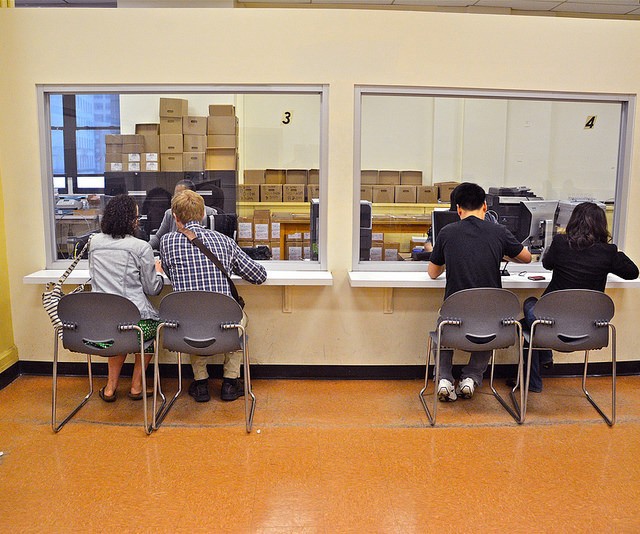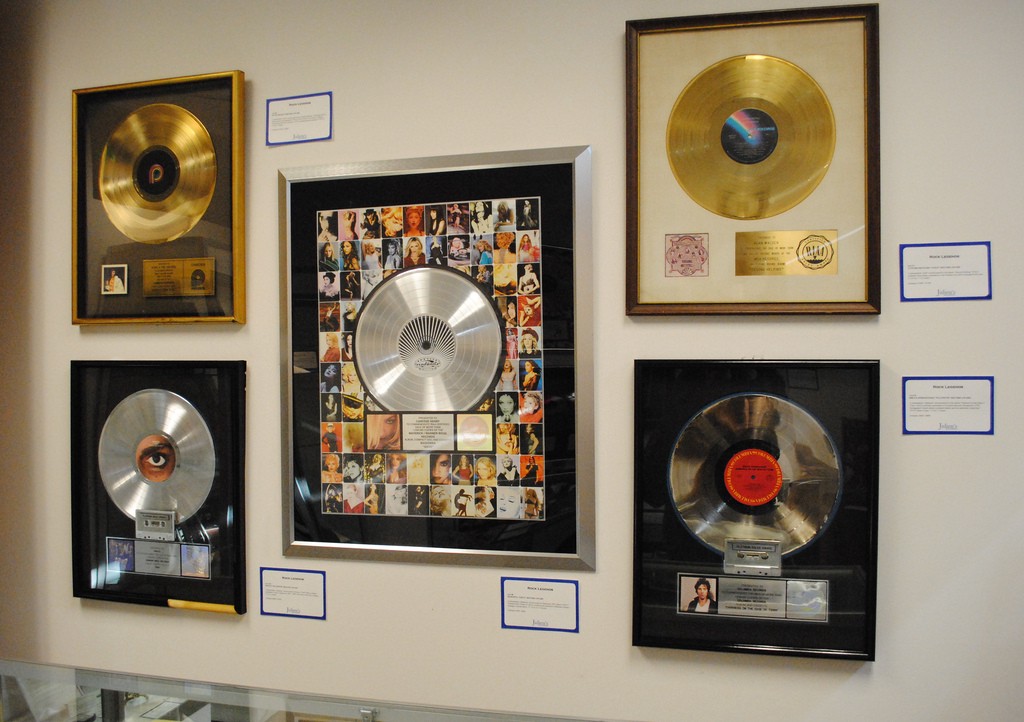A Poem By Amit Majmudar
by Mark Bibbins, Editor
Table of Contents
CHAPTER ONE
We Purloin the Balloon. — Details of our Party, with Special Attention Paid to the Cat, Marina. — Our Water Stores Prove Not to be Water. — “And the Map, Dr. Urquhart?” — Of Certain Problems Caused by an Ill-Placed Migration of Cantankerous Birds. — Six Days at Sea in a Wicker Basket. — Flying Fish and Rising Spirits. — We Fall to Quarreling. — The Storm.
CHAPTER TWO
A Curious Seashell with a Curious Inhabitant. — Vulgar Oaths and the “Petticoat Police.” — An Encounter with the Bones of a One-Legged Portuguese Jesuit. — Dr. Urquhart Shoots a Boar. — How the Boar was Skinned in the Absence of Knives. — How I Made a Worcestershire Sauce using Herbs Available to Hand. — Of the Variety and Character of our Dreams. — Of the Variety and Character of our Nightmares. — Our Negro Clyde Discovers a Mysterious Mark.
CHAPTER THREE
Description of the Goro River, and its Unfitness for Bathing. — Savages! — Mr. Parker the American Improvises a Raft. — The Waterfall. — “But where is Clyde?” — Dr. Urquhart Inspects a Spear and Dilates on the Races of Man. — Four Impertinent Flamingos. — The Mysterious Mark Reappears. — We Eat a Creature Hitherto Unknown to Science. — Mosquitoes and Muscatel.
CHAPTER FOUR
We Arrive at the Mission. — Description of Local Customs Regarding the Killing of Christians. — Smelling Salts and Muscatel. — Ambushed! — Mr. Parker Improvises a Barricade. — I Hearten the Menfolk by Improvising a Hymn. — Muskets and Muscatel. — Into the Jungle. — I am Taught the Difference between Hock and Sack.
CHAPTER FIVE
Dr. Urquhart’s Necklace of Ears. — I Submit to a Leash. — Our Italian Friend Vanishes. — We Boil Mushrooms. — Mr. Parker Improvises a Forest Fire. — Deeper into the Jungle. — Dr. Urquhart Speculates on the Mysterious Mark. — A “Tattoo” on my Forehead. — Conversations with a Mulatta Cockatiel. — Mr. Parker’s Chilblains. — “Excelsior!”
CHAPTER SIX
We Find the Astrolabe. — After Searching in Vain for the Sea, we Discard the Astrolabe. — Description of Ambanabou Valley, its Flora and Fauna. — Marina’s Litter Proves Half Tiger. — We Dine on Very Tender Meat. — Dr. Urquhart Makes a Demand.
CHAPTER SEVEN
The German Elopes with the Honeytongued Cockatiel. — The Contents of his Valise. — I Fashion a Clay Smoking-Pipe. — Contents of the Pipe. — Savages! — Correction: Trees. — Naked Priestesses Coupling with Bonobos! — Correction: Trees. — Dr. Urquhart’s Panegyric on Paregoric. — Mr. Parker’s Laudanum Lovesong.
CHAPTER EIGHT
Description of Measles of the Lady Parts, a Common Tropical Affliction. — A Trek. — Treats of the Orougoura Grasslands. — A Magnificent Beast. — Drinking Alongside Zebras. — Dr. Urquhart’s Curious Scrofula Remedy. — A Shakespearean Interlude. — The Rope-Bridge. — Our Expedition “Hangs by a Thread.” — Savages!
CHAPTER NINE
Saved for the Shackles. — “Gee whillickers, Doc!” — Our Hindoo, Chickoo Sing, Absconds with the Silver. — The Spaniard Absconds, with a Spear in his Back. — Capital City of the Oyoyoyoba. — Description of the Oyoyoyoba and their Attire. — Description of Chief Nsasa and his Retinue. — Description of the Chief’s Tent, with Special Attention to the Pole.
CHAPTER TEN
On the Kinds of Tortures Preferred by the Oyoyoyoba. — Mr. Parker Improvises a Series of Screams. — Dr. Urquhart Debates the Medicine-Man. — Marina’s Unexpected Importance in Tribal Religion. — I Taste a Sparrow’s Gallstone. — Chief Nsasa Makes an Extraordinary Proposal. — The Mysterious Mark Explained.
CHAPTER ELEVEN
A Description of Tropical Measles, as it Manifests in Men. — A Delegation from the Bellicose Mbaba. — We Visit the Silver Mines. — Dr. Urquhart’s New Accommodations. — A Festival in my Honor. — Dance of the White Eunuchs. — Honey-wine. — On the Practice of Polygamy Among the Oyoyoyoba. — On the Prospects of Polyandry Among the English.
CHAPTER TWELVE
A Night Visitor. — “I’se never drownded, Miss Vickas!” — I Raise the Alarm. — Our Negro Clyde Improvises a Series of Curses. — Honey-wine and Polyandry. — Marina Grows Fat. — More Threats of War. — I am Appointed Ambassador to the Mbaba. — Description of their City, and their Unlikely Piercings. — I Pacify the Enemy Repeatedly. — My Triumphant Return.
CHAPTER THIRTEEN
Chief Nsasa Coughs and Dies. — Mr. Parker is Accused of Casting a Spell. — The Medicine-Man Bleeds from his Eyes and Dies. — Dr. Urquhart is Accused of Casting a Spell. — The Chief’s Concubines Defecate Rice Water and Die. — I am Begged to Propitiate my Cat. — The Oyoyoyoba Ooze and Die. — Marina Demands Two Executions. — The Mbaba Blow their Noses and Die. —
CHAPTER FOURTEEN
Marina and I Become Missionaries. — The Region is Converted. — Spiritual Crisis. — Return to England. — We Meet with Dignitaries. — A Fortnight at Balmoral. — Bible Study. — Lord Tennyson Makes an Extraordinary Request. — Marina Sits in the Queen’s Lap. — Lemon Biscuits and Soda-Water. — I Decide to Write my Adventures.
Amit Majmudar’s newest book of poems, Dothead, is just out from Knopf
.
Millennials Now The Only Generation To Not Hate Millennials
“The Snapchat generation looks at the millennials the same way the latter looked at Generation X — with a mixture of puzzlement and contempt. They are simply unable to understand their older peers’ narcissistic obsession with documenting themselves and whatever they do.”
The Slackening

Forget getting fired through Slack. Consider getting hired into a new Slack. Congratulations! And what fun — different slackbot responses, new channels, and — unlike an IRC channel, where you can only see messages from the time you connect going forward — a whole lot of scrollback. And if you work for a real company, which you should, it’s probably a paid Slack, with full access to the channel’s entire history. It is a truth universally acknowledged that an individual in possession of an archive of his peers’ commentary will type his own name into the search bar in the upper-right-hand corner.
Slack is dangerous for many reasons, not least of which is that, as Awl alumnus Matt Buchanan tweeted (and will inevitably and wisely delete), it’s a place you can “low-level LARP your job…while you wait to get to the office to perform it at a higher level.” Thanks to instant messaging clients, work qua work has become more social than ever. On a sociological level, Slack is a fascinating product, but on a personal level, it can be a horrifying one, because after all, these are logs of chat. Chatter! But also corporate chattel. Not handwritten (lol) correspondence, not carefully drafted emails, and certainly not something you’d expect a poor first-year at a white-shoe firm to have to wade through during doc review. In the wake of Hulk Hogan v. Gawker trial, former Gawker editor-in-chief Max Read wrote for New York:
The rise of workplace chat software — Slack, HipChat, Campfire, and even Google Hangouts — has been a boon to many tech and media companies. Lowering the threshold of communication eliminates productivity-costing energy expenditures like “standing up and walking over to someone.” Problems can be dealt with more efficiently, questions can be answered more quickly, and gossip can flow much more freely than ever before.
Which might be fine, if all that gossip wasn’t being archived in a searchable database. We’ve gotten so used to talking with our co-workers over Slack that we tend to forget it has an essential difference compared with in-person conversations: permanence. The ephemerality of face-to-face communication is a feature and a bug. The usefulness of being able to search your conversations with your boss to figure out exactly what he’s asking for turns into a major liability when it also includes you bitching with co-workers about him in a private chat.
While I am loath to admit that Dave Eggers might have been right about anything, I do think The Circle hit on an important feature in our modern world, if not in form then in function. Possibly much more damning than the images we capture of every last horrible and wonderful thing that happens in the world, from a police officer shooting an innocent child to a couple embracing on Google Street View, is the increasing accumulation of raw, unfiltered commentary. Slack is one long backchannel, and the whole point of a backchannel is that it’s a room behind closed doors. But guess what, the room is bugged. Those of you who use Slack will recognize that when someone mentions your name or your handle, the software gives you a little yellow highlight, and possibly even a desktop notification. On mobile, maybe your phone buzzes in your pocket. What if that same code were to be applied anywhere your name appeared, even in someone’s private messages?
I walk around telling people I think privacy is an illusion, which is not to say I don’t think it’s a right. But the more of ourselves we put directly into the ones and zeroes, the easier it will be for them to betray us. We’ve never been closer to actual, literal mind-reading! (The grave danger here of course being a false equivalence of Other People’s Thoughts with The Truth.) I have always assumed that when I die, my children or relatives will gain access to my full digital archive, passwords or no. And I hope that when they do, they will forgive me my inconsistencies, my typos, and all of my least charitable thoughts. But that time may come sooner for some of us, and it will be our employers looking instead of our families and friends. There, among the links shared, code pasted, and work products delivered, will be all kinds of mean, nasty, ugly, and horrible-looking stuff, and a whole lot of GIFs of dragons fucking hatchbacks. What will they find, and how forgiving will they be? And what will it say about me?
Steve Carell Animal Spirits
“In a note published on Wednesday, Morgan Stanley analysts led by Jeen Ng wonder whether last year’s debut of The Big Short — the film version of the Michael Lewis book published in 2010 — has played a role in sparking fresh worries over [subprime auto bonds].”
Moses Boyd, "Drum Dance"
If you’re having a hard time getting started today let me assure you that you are not alone. I mean, most days it’s already tough to come up with a reason to rise, but now that it looks like we won’t see the sun until Sunday it’s difficult to even keep your head up. I suppose I should say something optimistic here so I will tell you that at least it’s not snowing today. (That comes Saturday.) Anyway, this track from Moses Boyd is shimmery and enjoyable and it might be the only upbeat thing you encounter today, so do try to enjoy.
New York City, April 5, 2016

★★ What met the faces coming out the lobby door was a winter wind. The glaze high on the white-brick building was blinding. Out on Broadway, between the dazzle and the cold, the eyes started to water. A bright red space heater balanced on the counter of the newsstand. Someone lugging a roller bag down the steps into the subway had earmuffs on. Bits of deep blue showed in a row through the balustrade atop the Hartford Building. A black fire escape reached gothic extremities of light and shadow. A spot of water on the sidewalk had fully iced.
Close and Committed: A Brief History of Domestic Partnerships
by Alana Pipe

Domestic partnership is an important institution that is going extinct in America. It grants fewer rights and imposes fewer responsibilities than marriage. In the nineties, the limitations of domestic partnership limited its appeal while it was the highest form of union for same sex couples, who were at that time barred from marrying. The exclusivity of marriage made domestic partnership look like a weak alternative for same-sex couples. Now that marriage is more open, the carefully measured rights and limitations of domestic partnership pose a practical and pragmatic alternative for couples.
“The term family,” declared Associate Justice Vito Titone in July of 1989, “should not be rigidly restricted to those people who have formalized their relationship by obtaining, for instance, a marriage certificate or an adoption order.” These words heralded a new kind of union in New York City, when a man named Miguel Baraschi lost his partner of ten years to AIDS, and was suddenly evicted from the rent-controlled apartment he had shared with him. There being no institution to formally recognize their relationship, he had no documented right to continue living in his own apartment. Forced out, Baraschi took his case to court. The case went to the Court of Appeals, and he won, the court ruling that “the intended protection against sudden eviction should not rest on fictitious legal distinctions or genetic history, but instead should find its foundation in the reality of family life.” For the first time, same-sex couples who had lived together for ten years or more were legally considered a family under New York City’s rent-control regulations.
One week after Baraschi won his case Mayor Ed Koch issued an executive order. Young men and women were dying in unprecedented numbers from AIDS, and Koch granted hospital visitation rights and four days of paid bereavement leave to city employees and their registered domestic partners. “This has nothing to do with gay rights,” Koch said, as he issued an order that broadly expanded rights to non-married couples. “The largest number of people eligible will be heterosexuals living together as couples but not married, elderly people living with companions, people who have a domestic relationship but not necessarily sexual relations.” Though it arose from the era of AIDS, domestic partnership had to be presented carefully for broader appeal to conservative voters.
In 1993, Mayor David Dinkins codified domestic partnership in New York, and after a three-year lawsuit and lengthy negotiations finally agreed to expand health benefits of city employees to their domestic partners, creating a registry at the City Clerk’s office that was for the first time open to both heterosexual and same-sex couples. At that time, 70 percent of registrants were same-sex couples. In 1997, when Rudy Giuliani was running for re-election, he promised to sign domestic partnership rights into law. When the legislation passed in 1998, 8,700 couples registered as domestic partners; over 55 percent of those couples were heterosexual, and fewer than 45 percent were same-sex couples. Giuliani remarked: “This landmark legislation represents a logical step forward in ensuring that those couples who choose to live in economically dependent and committed relationships continue to receive these important rights, benefits and protections and equal treatment under the law.”

Twenty-five years later, my boyfriend and I stood outside Brooklyn’s Borough Hall at 7:45 in the morning, joining a line that wrapped around the corner and halfway down the block. We had come to register as domestic partners after three years together. While I’ve never referred to Edmund as my Registered Domestic Partner when I introduce him to people, I can’t deny my excitement at having our relationship officially acknowledged. It was the practical benefits that swayed us toward domestic partnership: Edmund gained access to my health insurance, which would have otherwise been unaffordable, even through Obamacare. We also gained family status in New York hospitals. With my own relatives thousands of miles away, having Edmund as a legally recognized member of my family made sense in case of emergency.
These unions have existed around the country for years, helping thousands of couples secure legal rights without getting married. Today, in New York City, a domestic partnership is a legally recognized status for people in a close and committed personal relationship involving shared responsibilities. To enter a domestic partnership, both parties must be at least 18, unrelated by blood, living together “on a continuous basis,” and be unmarried. This legal status was the created by the city as a means to gain legal protection without opting for marriage. Same-sex couples were instrumental in creating this alternative institution, as marriage was not an option open to them. Identifying this as an infringement of rights, and not wanting to rock the boat, the city presented domestic partnerships as a type of union that would benefit all types of couples, regardless of sexual orientation.
Following the legalization of same sex-marriage in Obergefell v. Hodges, the future of domestic partnership in New York City remains unclear. Domestic partnerships and civil unions have been steadily phased out in Connecticut, New Hampshire, Delaware, and Rhode Island. Vermont stopped offering civil union status in 2009, when the state began offering same-sex marriage, though pre-existing civil union status is still honored. While about a third of the workplaces in New York offer benefits to domestic partners, many corporate employers are rescinding the benefits formerly granted to domestic partners. IBM, Delta Airlines, Verizon, and several major universities that formerly conferred benefits to domestic partners have replaced them with spousal benefits.
Marriage can’t be the only standard of commitment in the eyes of government. Marriage has been problematic in the recent past, to women and to the LGBTQ community. The fact that marriage may be is required to gain health benefits in workplaces or to gain visitation rights in hospitals forces some people to make religiously loaded choices to be treated equally. It extends a rigid tradition of family to same-sex couples. Domestic partnership is a way around the tradition of marriage, and family, which has been frighteningly slow to change. We are losing a means of validating families, as domestic partnership is phased out by states and employers. In the past, people who could not, or wished to officialize family setup with a marriage had a means of gaining rights. As it was ruled in 1989, protection of these people’s family rights “should not rest on fictitious legal distinctions or genetic history, but instead should find its foundation in the reality of family life.” In 2016, in New York, the reality of family life does not always coincide with marriage. The rate of marriage for millennial Americans is lower than it has ever been amongst previous generations. The rate of marriage has dropped, particularly amongst black and hispanic millennials, and millennials without a college degree. As marriage wanes amongst these groups, so does access to healthcare. The advent of marriage equality has caused some to see domestic partnership as an obsolete institution, but perhaps it’s time for us to reconsider domestic partnership as a valid solution.

By 8:00am, the line came to life and began to move forward. We were led through a metal detector, and up a flight of stairs to the City Clerk’s Office. The fluorescent lights cast a greenish tint where a row of desks sat behind bulletproof glass. A single rose stood in a lone vase next to bunches of pens and bottles of white-out. We walked up to the window and a lady yelled for us to wait by the wall. A maze of red tape demarcated the line. Ahead of us, two women in braids and sundresses smiled and held hands. A black man in a tux stood next to a woman in a full, traditional white gown. Behind us, an elderly woman held onto an old man’s elbow. Eventually, we reached the window, where we had to enunciate through a cluster of tiny holes in plexiglass.
“Are you here for marriage or domestic partnership?”
“Domestic partnership,” we boomed into the holes.
“Have you been previously married before? Are you currently in another domestic partnership? Where were your parents born?”After answering the questions, we signed that we were living together in a close and committed personal relationship, flashed them a copy of our lease and driver’s licenses. Edmund raised his eyebrows playfully, then swiped his credit card as if he were buying a pair of socks. We were issued a bright-blue certificate in gothic script, asserting that we are domestic partners. As we left, we passed a bride admiring her own dress and saying to her friend, “You only get married once.”
“That’s not true!” yelled her mother, an older Caribbean-American woman. She linked arms with her daughter and smiled.
Photo: Flickr
How Men And Women Do Racism On Facebook
“While young, less educated males are those who share a greater amount of discriminatory content on Facebook, young university females share the least…. [Y]oung males tend to be more direct by posting and sharing messages with content that is more clearly discriminatory and mainly aimed at ethnic groups and cultural minorities. On the other hand, females utilise indirect forms of discrimination such as agreeing with and spreading content posted by others by clicking the ‘like’ button; this strategy makes the element of discrimination less evident.”
Merle Haggard, 1937-2016
“Merle Haggard, the prolific singer-songwriter who sang of his law-breaking Bakersfield youth and penned a seemingly effortless stream of natural, storytelling lyrics with vast popular appeal — nearly 100 of his songs made the Billboard charts — has died at his home near Redding, said his spokeswoman Tresa Redburn. He was 79.”
Soundscan Surprises, Week Ending 3/31
Back-catalog sales numbers of note from Nielsen SoundScan.

“A recent review of music sales has revealed 2015 to be the first year where back catalog sales (18 months +) exceeded those of new releases, even with the launch of big name titles like Adele’s 25.”
— This is an excellent blog post about the state of record sales today, and the inspiration for a new semi-regular feature where we hand-pick a few weekly sales numbers of note from the Top 200 Catalog Albums sales figures, released by Nielsen SoundScan on Mondays.
2. SEGER*BOB ULTIMATE HITS: ROCK & ROLL 6,363 COPIES
7. JACKSON*MICHAEL OFF THE WALL 3,928 COPIES
10. METALLICA MASTER OF PUPPETS 3,544 COPIES
11. BOWIE*DAVID BEST OF DAVID BOWIE 3,349 COPIES
36. NIRVANA NEVERMIND 2,300 COPIES
53. PANIC! AT THE DISCO TOO WEIRD TO LIVE TOO RARE TO DIE! 1,967 COPIES
75. TUPAC GREATEST HITS 1,627 COPIES
94. PANIC! AT THE DISCO VICES & VIRTUES 1,501 COPIES
191. VARIOUS JESUS CHRIST SUPERSTAR (2012) 1,066 COPIES
Photo: Flickr
